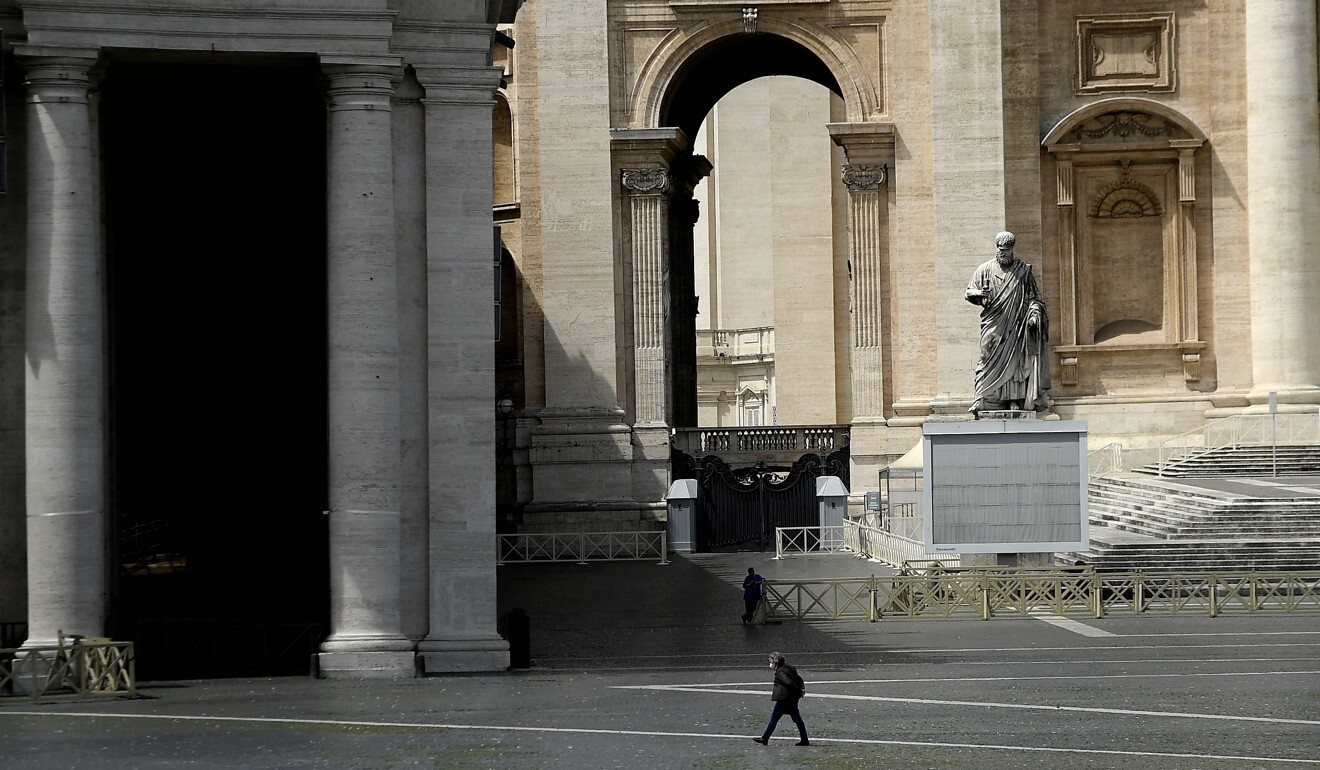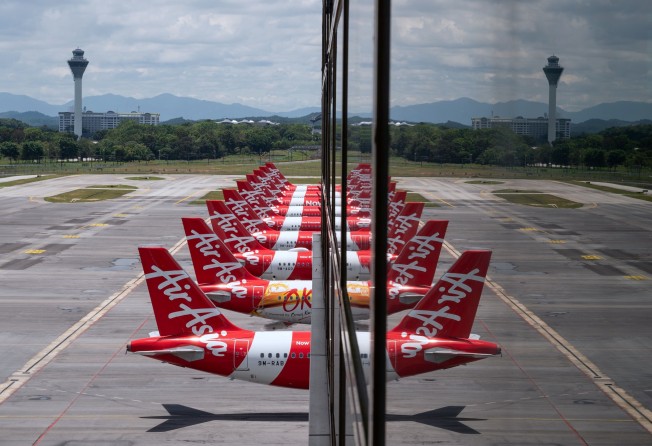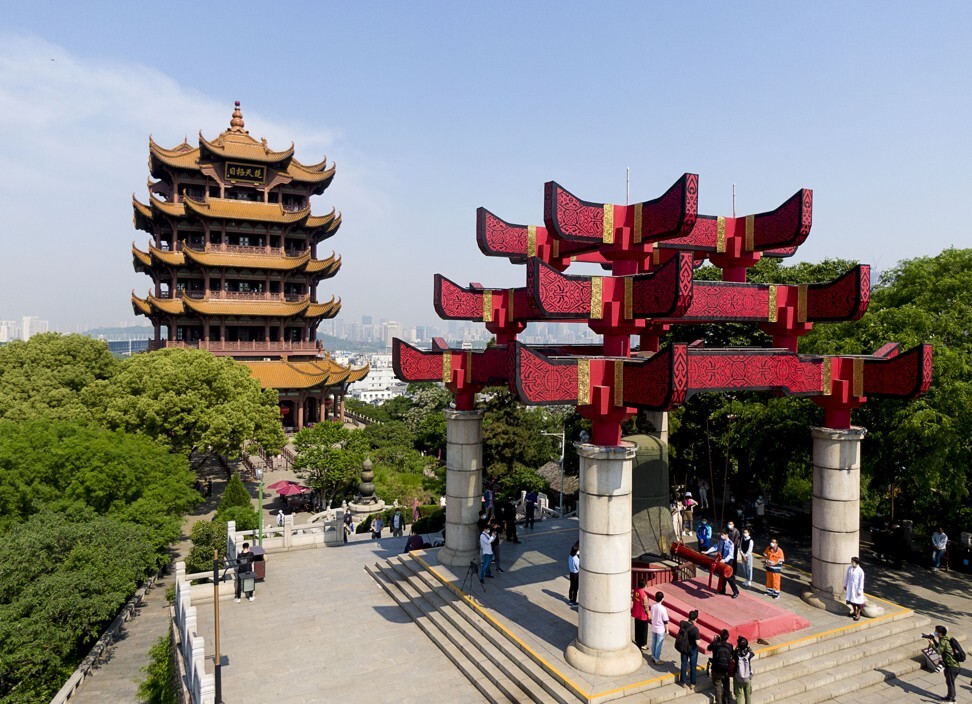
Coronavirus is telling us to be a citizen of our country – and our world
- The disease has shaken the human species to the core, but we must grasp the metaphysical messages it is sending
- To survive in the short term, we need national solidarity – but to survive in the long term, we need global solidarity

Covid-19 has shaken the human species to the core. It has metaphorically, if not literally, shut down our world. If humans fail to grasp the deeper metaphysical messages this pandemic is sending, we cannot claim to be the most intelligent species on the planet. The metaphysical messages are clear but contradictory: to survive in the short term, we need national solidarity. To survive in the long term, we need global solidarity.
The Italians understood the first message well. When Italy became the first major European country to be hit badly by Covid-19, Italians naturally expected their European Union allies to step up to help. Initially Germany and France offered little help. Yet, despite this rebuff from their fellow Europeans, Italy has made some progress in social solidarity.
Barely 150 years ago, before a modern, united Italy was born, such an expectation of solidarity across regions would have puzzled the citizens of affluent Lombardy or poor Sicily. In short, our sense of the human community to which our hearts belong can change over time. Perhaps a century from now, the Germans and Italians might feel the same sense of community that Lombardians and Sicilians feel now. Pascal Lamy, the former head of the World Trade Organisation, has described well the essence of this response: nations have become “solid”, the EU has become “liquid” and globalisation “gaseous”.

This retreat to national solidarity is happening everywhere. China cut itself off from the world and focused on the internal battle against Covid-19 to stop the Wuhan outbreak from infecting the whole country. The United States also advised its major corporations to put American interests first. When 3M wanted to honour its contractual obligations to Latin America and Canada, Peter Navarro, an influential member of US President Donald Trump’s trade team, said 3M “basically wants to act like a sovereign nation in terms of what it allows the United States to have with its production, and where it wants to export its masks. And in this crisis, there is only one country and only one president.”
With this retreat to national solidarity even by the world’s spiritual founder of our modern era of globalisation, it’s easy to jump to the conclusion that the era of open borders is over. Many analysts expect most nations around the world to pull up their drawbridges and try to lock themselves up from the world, opening doors only for minimal trade and some elite links.
Harold James, professor of history and international affairs at Princeton University, predicts that Covid-19 will lead to a “waning of globalisation”. Many are ready to say goodbye to globalisation! Yet when these nations lock themselves up, they may find that they have locked themselves into a cabin on a virus-infected cruise ship. Just as the virus seeps into cabins through ventilation systems, other global challenges – be they climate change, pollution, terrorist ideologies, desperate refugees or nuclear threats – will find their way to cross borders.
The hard new reality is that the genie of globalisation cannot be put back into the bottle. This is the 21st century, not the 19th century. The global middle class has exploded in numbers. Most have heard of the Taj Mahal and the Eiffel Tower, Machu Picchu and Angkor Wat, New York City and London. Human movements across planet Earth shot up dramatically during the first two decades of the 21st century. From 1998 to 2017, annual aviation traffic increased from 1.47 billion people to 3.98 billion. As noteworthy is the continued growth of the Asian middle-class population. The surge of Asian tourists overseas, including from China, has just begun. In 2019, more than 130 million Chinese travelled abroad. By 2028, it could well be 300 million.
Texas, Alaska and Florida may shut their doors to Chinese tourists. Carnival Cruise ships and Caribbean islands will not, and neither will most of the world. Equally importantly, China’s response to the Covid-19 crisis has been the opposite of the US. After applying strict measures to shut down the country for a few months and successfully containing the disease’s spread, China quickly reopened for global engagements with testing, temperature screening and the use of digital codes that identify health status and track locations.
According to China’s Ministry of Foreign Affairs, the country has sent in-kind medical assistance to 127 countries. The US is also helping out. According to USAID, the US is leading the global humanitarian assistance, with monetary assistance to 64 countries, including a precious gift of US$18.3 million to Asean.
Hence, despite the rhetoric, both the US and China will remain globally engaged. China has many reasons for maintaining its global links, including altruism and pragmatic self-interest. To understand key motivations in China, one must consider the Century of Humiliation, from 1842 to 1945, which continues to haunt the Chinese. The Chinese know this humiliation happened because China cut itself off from the world. By contrast, the rejuvenation and renaissance it has experienced over the past 40 years happened only because Deng Xiaoping opened it up again. The secret of China’s success can be explained in two words: global engagement. Most of East Asia will also remain globally engaged.
In short, globalisation will continue. We will discover that our small planet will continue to shrink and become more interdependent. We will have to work together as one species and show global solidarity to deal with emerging challenges. In 2020, we may overcome Covid-19. Yet, more global challenges will come our way, from global warming to global financial crises. So, even if population centres must retreat into national solidarity to cope with short-term emergencies, nations must also advance into global solidarity to deal with long-term challenges.
Can the human mind retreat and advance simultaneously? Can it handle such contradictions? The Chinese concept of yin and yang offers some hope, suggesting that the human universe is always full of opposites. Yet, there is one small step each human being should take today – each declaring that we are both a citizen of our own country and a citizen of our world. For example, in affluent nations, we can pay taxes to support green energy in our own countries and subsidise green energy in poorer countries. We can honour both these obligations. This is what Covid-19 is telling us to do.
Kishore Mahbubani, a Distinguished Fellow at the Asia Research Institute, National University of Singapore, is the author of Has China Won?
Help us understand what you are interested in so that we can improve SCMP and provide a better experience for you. We would like to invite you to take this five-minute survey on how you engage with SCMP and the news.
